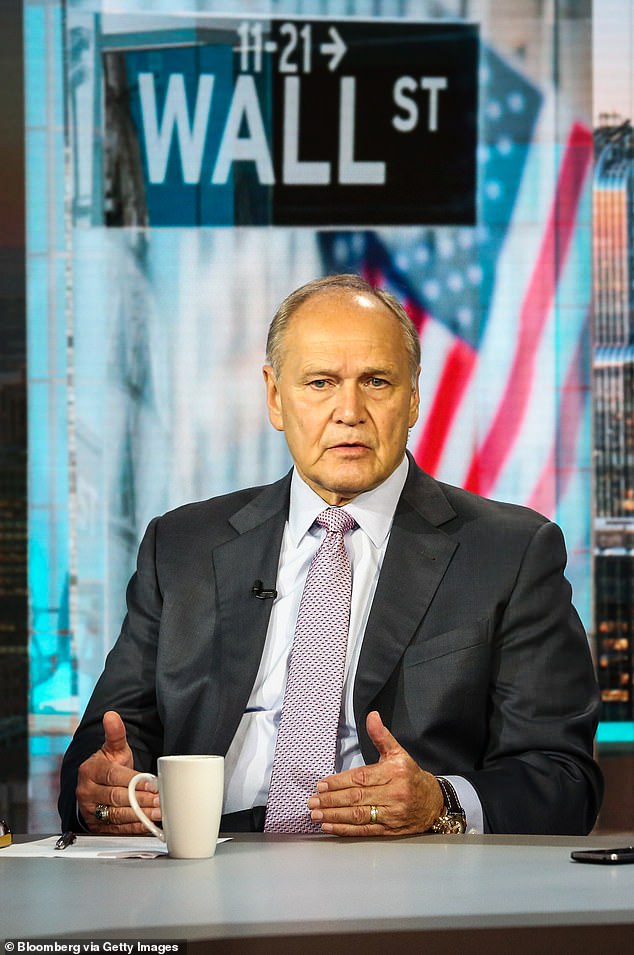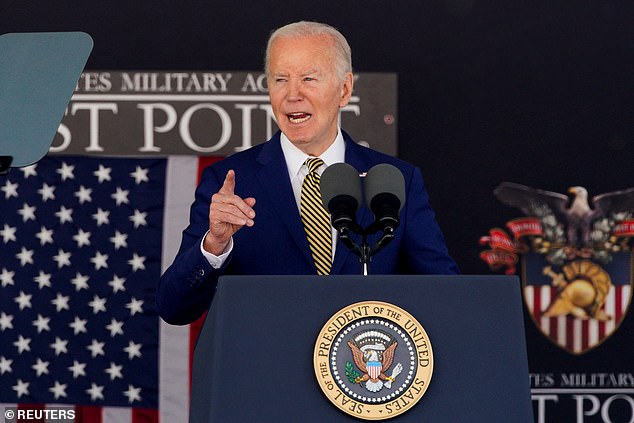Billionaire investor issues stark warning about future of the stock market
A billionaire hedge fund manager has sounded the alarm about a looming stock market crash despite the rising stock market.
Mark Spitznagel, whose Universa Investments specializes in betting on market volatility, told the Wall Street Journal that he regards the current financial outlook as a ‘powder keg’.
Spitznagel made his name on Wall Street by betting his money on disastrous moments, such as the 2008 financial crisis and the Covid-19 pandemic.
And he warned that he believes right now “we’re headed for something very, very bad.”
Mark Spitznagel, managing director of Universa Investments, said the US economy is on the brink of collapse and warned that “we are headed for something very, very bad”
Spitznagel added, “But of course I would say that,” noting that his business strategy depends on preparing for market crashes.
But his warning about a looming crisis is notable given that analysts expect the US economy to be strengthening now.
The stock market is near record highs and the Fed’s rate cut at a time of falling inflation has many other hedge funders optimistic.
Spitznagel described the economy as going through a “Goldilocks phase,” but he doesn’t believe the economy has the fundamentals to last.
He told the Wall Street Journal that rate cuts can often lead to long-term market reversals and that he already sees other investors following his lead despite the current state of the market.
“You don’t feel stupid for making a pessimistic argument,” he added.
It’s a similarly ominous prospect that former Home Depot and Chrysler CEO Bob Nardelli voiced earlier this year when he said FOX Affairs that there is currently ‘enormous pressure on the fault lines of our economy, and that they are close to bursting.’

Earlier this year, former Home Depot and Chrysler CEO Bob Nardelli said the U.S. economy is facing a “tough time” and warned the economy is “ready to burst”
Spitznagel expects a major sell-off once the crash comes, as stocks lose more than half their market value.
Experts see the rise of artificial intelligence as a turning point for the economy, comparable to the dotcom boom at the turn of the century.
This made AI and technology company Nvidia the largest company in the world by market capitalization in June, as major companies also benefited from the gains.
But Spitznagel said that if the crash he predicted happens, this “Goldilocks phase” could lead to what the billionaire called “the biggest bubble in human history.”
He called the weak fundamentals of the current US economy a “mega time bomb,” an ominous comparison to the way high debt and hidden risks have turned the economy into a powder keg for potential crisis.
While his outlook is far from positive, Spitznagel said ordinary investors would be better off not following his advice.
He believes the best long-term strategy is to invest passively in stocks. Universa’s tactics to help hedge funds through bad times are not so applicable to individual investors.

President Joe Biden is proposing a major overhaul of both the income tax and the capital gains tax as part of his 2025 budget that one expert says could ‘crush’ the economy
The approaching presidential election is also making investors wary of a second term for Joe Biden in the White House, given his proposal to raise capital gains taxes.
The president has announced plans to raise the top marginal rate on long-term capital gains and qualified dividends from 23.8 percent to 44.6 percent.
Capital gains tax is paid on investments that have increased in value between purchase and sale. Examples include shares, real estate or cryptocurrencies.
Ted Jenkin, CEO of oXYGen Financial, recently warned that the planned hikes would come into effect at the same time that Trump’s critical tax cuts are also set to expire. Jenkin explained that the two factors would “crush” the economy as Americans rush to sell their assets ahead of time.
Under Biden’s proposal, 11 states would end up paying more than 50 percent in capital gains taxes combined with state taxes. High-tax states like New York, California and Hawaii would be hit even harder.
